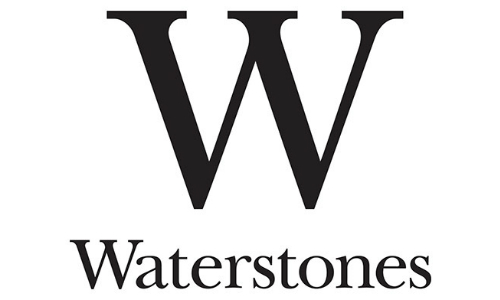Windsor Framework FAQ's
The Windsor Framework is an agreement between the UK and EU to manage trade from mainland to Northern Ireland, which is also part of UK, following Brexit.
WINDSOR FRAMEWORK UPDATE:
Following the guidance issued in September 2024, there has been extensive preparatory work undertaken for the new arrangements for the movement of goods from Great Britain (England, Scotland and Wales) to Northern Ireland by parcels or freight set out in the Windsor Framework. As a result, and in accordance with the relevant procedures, the new arrangements outlined in the Windsor Framework have come into effect as of 1 May 2025, as per the government guidance. Please review the latest guidelines to ensure compliance ahead of the new date.
Intelligent Shipper Version 1.7.19 API Specification
Where can I find the latest API specification?
The latest Intelligent Shipper Version 1.7.19 API Specification is available. This will be included in our March release, featuring the most up-to-date API specifications.
What should I do to prepare for the update?
Intersoft strongly recommends that you:
✅ Start populating the fields outlined in the example script provided in this article.
✅ Confirm with your carrier which fields are mandatory to ensure compliance.
✅ Review our Knowledge Base article for a full breakdown of the technical requirements, including an example XML request to help with your setup.
What is the Windsor Framework?
The Windsor Framework is an agreement between the UK and EU to manage trade from mainland GB to Northern Ireland, which is also part of GB, following Brexit. The Windsor Framework replaces the previous agreement, the Northern Ireland Protocol, which was introduced under Brexit. The Windsor Framework aims to simplify customs procedures and checks between GB and Northern Ireland, and also ensure that Northern Ireland can access the EU single market without creating a hard customs border between Northern Ireland, which is part of GB, and the Republic of Ireland (country code IE) which is part of the EU.
Under the Windsor Framework, there are different customs requirement for B2C shipments travelling from GB to Northern Ireland, and B2B shipments travelling from GB to Northern Ireland. The Windsor Framework changes come into place on 31st March 2025.
First and foremost it is important that you familiarise yourself with the Information regarding the Windsor Framework, what it is, and when it will come into effect via the HMRC website here, along with a full glossary of common terminology associated with this topic.
Does the Windsor Framework affect all customers?
The Windsor Framework only affects customers sending goods from Great Britain (Great Britain) to Northern Ireland (Northern Ireland). The new regulations do not affect goods sent from Northern Ireland to Great Britain or from Northern Ireland to Northern Ireland, or items of correspondence.
Are all carriers subject to Windsor Framework?
Yes. The regulations apply to all carriers and will take effect from 31 March 2025, however, If a carrier only ships B2C (business to consumer) or C2C (consumer to consumer) parcels between Great Britain (GB) and Northern Ireland (NI), the Windsor Framework applies, but with fewer restrictions.
Some items like food, plants and medicines may need extra checks.
What do I need to do if I am a Business to Business (B2B) customer?
If you are shipping B2B (Business-to-Business) from Great Britain to Northern Ireland, the requirements depend on the shipment value and whether you have a UKIMS pre-registration number.
1. Shipments Over £135
- You must provide a UKIMS pre-registration number.
- Item HS Code is optional if a UKIMS number is provided.
- Item Country of Origin is mandatory.
2. Shipments £135 or Under
- You can ship with or without a UKIMS pre-registration number.
- If a UKIMS number is provided → Item HS Code is optional (regardless of the shipment value).
- If no UKIMS number is provided → Item HS Code is mandatory.
- Item Country of Origin is always mandatory.
3. UKIMS Number Validation
-
If a UKIMS number is provided, it must include either the sender’s or receiver’s EORI number.
- If it does not match either EORI number, the shipment will be rejected.
Any B2B customers shipping to Northern Ireland will need to upgrade to Intelligent Shipper Version 1.7.19 API specs to access the new ‘Transaction Type’ field.
If a customer is sending B2B shipments they will need to include the following additional fields:
-
<businessTransactionType>B2B</businessTransactionType>
-
This field is a new field in iShipper only as it already exists in Sapient. It needs to be populated for ALL B2B shipments and if not populated, it will default to B2C and the shipments will be at risk of going into the red lane.
-
-
<preRegistrationNumber>
-
Use this field to pass the Shippers UKIMS number. If UKIMS is not provided for B2B shipments to Northern Ireland, it indicates the shipment is at risk of onward movement to the EU (red lane).
-
-
<preRegistrationType>
-
For a UKIMS number, the pre-registration type should be UKIMS.
-
-
<destinationEORINumber>
-
This will also need to be provided.
-
|
|
Sapient |
Ishipper |
||
|
|
Business to Consumer (B2C) |
Business to Business (B2B) |
Business to Consumer (B2C) |
Business to Business (B2B) |
|
All Carriers |
Customers will need to supply item information for shipments from GB to NI. |
Customers will need to supply item information for shipments from GB to NI. |
Customers will need to supply item information for shipments from GB to NI. |
Customers will need to supply item information for shipments from GB to NI. |
What do I need to do if I am a Business to Consumer (B2C) customer?
If you’re a business in Great Britain that sends parcels to a consumer in Northern Ireland, there are no customs declarations, customs duty, or presentation of goods to customs authorities if the parcel is moved by a carrier authorised under the UK Carrier Scheme.
If you only send business-to-consumer parcels, you do not need to register for any scheme, such as the UK Internal Market Scheme. Your courier or express operator will need to be authorised under the UK Carrier Scheme detailed in this guide.
Your courier or express operator will collect information about the parcel, such as the weight, the recipient and contents. You should provide your courier or express operator with a simple description of each product inside the parcel. For example, shampoo, plastic cups or mobile phones.
Your courier or express operator will notify you of any relevant prohibited goods or any additional information needed to move restricted goods.
Click and collect orders are parcels where consumers place orders for goods to be delivered to a business address in Northern Ireland for collection. For example, from a parcel locker in a shop. These can be treated as business-to-consumer parcels even when they are sent to a business address.
As a B2C sender, you do not need to provide:
- HS Codes
- Country of Origin
- UKIMS registration or UKIMS number (these apply only to B2B shipments)
However, for dutiable B2C shipments, the following fields are typically mandatory:
- Item description
- Weight
- Value
- Quantity
While our systems do not require HS codes or country of origin for B2C shipments, some carriers may request them, so it's best to check with your courier.
Additionally, the reason for export is mandatory in Sapient, but not in iShipper.
📌 Note: These rules apply only to B2C shipments. If you're sending B2B, different requirements apply, including potential UKIMS registration and provision of customs data.
If you're unsure about any of the above, please check with your courier for their preferred method of providing product information.
🔗 For full details, refer to the official HMRC guidance on sending parcels under the Windsor Framework.
What do I need to do if I have items to return?
What is the UK Internal Market Scheme (UKIMS)?
The UK Internal Market Scheme is an authorisation that allows registered businesses to declare your goods ‘not at risk’ if they are brought into Northern Ireland for sale or final use by end consumers in Northern Ireland (and Great Britain in the case of movements from Great Britain) and meet all the other criteria to move under UKIMS as set out in the guidance. For further details on its benefits, eligibility and registration go to GOV.UK.
Can i use a UK Internal Market Scheme (UKIMS) that is not the senders?
Yes, but only under specific conditions and depending on the carriers. The UKIMS number provided must belong to the Northern Ireland recipient (consignee) or a recognised trader responsible for the movement. Further details can be found here.
Please see below carrier specific requirements
- DX: Don’t have a field to capture UKIMS. There is a field in the create shipment request for DX to declare a shipment as UKIMS compliant, that is the only data DX ask for related to UKIMS.
- Evri: Don’t support B2B (Business to Business) shipments, so UKIMS isn’t applicable.
- Whistl: Customer supplies the UKIMS to Whistl in the account details, we don’t send it in the API request.
- Royal Mail: Customer can provide either sender or receiver UKIMS, but the EORI portion of the UKIMS provided must contain either the sender or receiver EORI provided for the shipment. If the UKIMS provided does not contain either the sender or receiver EORI, the shipment will fail.
- DHL Express: Customer could provide sender or receiver UKIMS. DHL Express only have one field for providing UKIMS so either can be used, and its not validated against EORI number.
- DHL eCommerce (formerly DHL Parcel): Either sender or receiver UKIMS can be provided.
- DPD and DPD Local: Accept either sender or receiver UKIMS, and have separate fields in their manifest file for each. As Intelligent Shipper API only has one UKIMS field and we don’t know whether it’s the sender or the receiver, we’ve mapped it to the sender UKIMS, as this is number customers are more likely to have access to (i.e. either own UKIMS number, rather than the receiver’s).
- UPS: Customer supplies UKIMS number to UPS and its set against their account in UPS’ system, we don’t supply it in the API request.
- Starlinks: No field to send UKIMS number.
- TNT: We don’t send UKIMS to TNT in their API request. If the Shipper is acting as the Importer of Record then they need to supply the UKIMS number in the Declaration statement on the commercial Invoice. No UKIMS is required if the receiver is acting as the importer as TNT will contact them and get it (this is expected to be the most likely way of working).
Do all customers have to register with the UK Internal Market Scheme (UKIMS)?
UKIMS only applies to B2B movements. UKIMS-registered businesses will be required to provide a reduced dataset compared to businesses not UKIMS-registered. B2B goods movements categorised as ‘not at risk’ must be accompanied by a valid UKIMS registration.
What are the advantages of registering with the UKIMS scheme?
Together with the reduced dataset requirements (compared to non-UKIMS B2B movements), a UKIMS registration will reduce the likelihood of goods movements being delayed or held for inspection, with potential custom charges applied.
What is the UKIMS format?
Provide the authorisation decision number for the UKIMS authorisation which will be in the format it always follows - XIUKIM+EORI+YYYY+MM+DD+HH+MM+SS. So, the EORI is the traders EORI number and the other fields are the time stamp as to when the UKIMS authorisation was logged (Year, Month, Date, Hour, Minute, Second). An example would be XIUKIM12345678900020240619102423.
Worth noting there are some obvious restrictions here, which are:
- MM will always be 01-12 (inclusive)
- DD will always be 01-31 (inclusive)
- HH will always be 01-24 (inclusive – it’s a 24 hour clock format)
- Minute will always be 00-59 (inclusive)
- Second will always be 00-59 (inclusive)
What is the ‘Green/Red lane’ system?
Two sets of differing customs checks will be performed according to where goods entering Northern Ireland from Great Britain are being sold as below:
- Goods for sale in Northern Ireland will use the ‘green lane’ and be subject to minimal checks, providing firms sign up to new ‘trusted trader’ schemes.
- Goods travelling further, for sale in the EU including Ireland, will be subject to more comprehensive checks with more documentation required.
Please check the HMRC link here for further clarification.
What is the business ‘Transaction Type’ and do I need to populate it?
This is a new field which will only be seen once upgrading to the new Intelligent Shipper Version 1.7 API Specs. This field only needs to be populated if the shipments are B2B. If a customer declares a B2B in the business transaction type, then the Pre-Registration Number field needs to be populated. If a customer does not populate the Pre-Registration field, then this shipment will be at risk and will go into the Red Lane.
Is the Description of Goods a mandatory field?
The Description of Goods field is mandatory in our API and must be provided for all shipments. This has always been a required field and has not changed under the Windsor Framework.
This field should contain a high-level description of the type of goods being shipped. In contrast, the Item Description field should provide a detailed breakdown of each individual item within the shipment.
Our APIs do not validate the content of the Description of Goods field, only that it meets the maximum character limit. For example, entering “goods for shipping” would be accepted by our system. However, we cannot guarantee that such a description will be accepted by customs authorities. We recommend checking the latest guidance on the gov.uk website to ensure compliance with government regulations.
Is the Product Image URL a mandatory field?
Product image URL is not a mandatory field, these are fields we recommended to review and start populating.
What are Incoterms parameters and what do DDU or DDP mean?
Incoterms (International Commercial Terms) are globally recognised rules that define the responsibilities of buyers and sellers in international trade, including shipping, insurance, customs clearance, and delivery costs.
Incoterms specify:
- Who is responsible for transport costs
- Who handles customs duties and taxes
- Where the risk transfers from seller to buyer
-
DDU (Delivered Duty Unpaid) – No Longer an Official Term
- The seller delivers the goods, but the buyer is responsible for paying import duties, taxes, and customs clearance fees.
- The term DDU is outdated and has been replaced by DAP (Delivered at Place) in the 2020 Incoterms rules.
-
DDP (Delivered Duty Paid)
- The seller is responsible for all costs, including shipping, import duties, taxes, and customs clearance.
- The buyer only needs to receive the goods, with no additional customs charges.
Key Difference Between DDU/DAP & DDP
- DDU/DAP → Buyer pays customs duties & taxes.
- DDP → Seller pays customs duties & taxes.
Please check the HMRC link here for further clarification.
Is the destination EORI a mandatory field?
The destination EORI number is not always required. Here’s a breakdown of when it applies:
Shipper’s EORI (Always Mandatory)
- You must always provide the shipper’s EORI number to ensure compliance.
Destination EORI (Conditional)
- If the shipper’s EORI and relevant details (e.g. UKIMS number) are provided, the destination EORI is not required.
- If the recipient has a UKIMS number and you choose to use it, then the destination EORI becomes mandatory alongside the UKIMS number.
Summary: The destination EORI is only required if a UKIMS number is provided for the recipient. If you are relying solely on the shipper’s details, the destination EORI remains optional.
Are there any carrier specific mandatory fields?
Yes, for the following carriers:
 Royal Mail
Royal Mail
To prepare for the additional data requirements, data specifications for all shipping channels have been released:

Where you hold an Import One Stop Shop (IOSS) number, it is essential that you provide this.
Royal Mail recommends that businesses use the HMRC guidelines and information on the IOSS scheme, more information can be found at: https://www.gov.uk/government/collections/vat-import-one-stop-shop-scheme
Customers must ensure the declaration is completed in full and accurately reflect the contents of the parcel, in order to facilitate customs clearance. Failure to do so may result in items being refused entry into NI.
➡️Support and guidance can be found at: https://www.gov.uk/import-goods-into-uk
For further information or clarification, please contact your Royal Mail Account Manager, who will be happy to assist you.
 DPD and DPD Local
DPD and DPD Local
-
These integrations only accept GBP or EUR in the Parcel Currency field (
declaredCurrencyCodein IShipper). -
This field is mandatory for all B2C and B2B shipments, regardless of whether they are classified as At Risk or Not At Risk.
 EVRI
EVRI
-
Only provides B2C and C2C services to Northern Ireland.
-
B2B shipments are not supported.
 AMAZON SHIPPING
AMAZON SHIPPING
-
Business transaction type: Shipments to businesses in Northern Ireland (NI) are not permitted; only shipments to private individuals for personal use are allowed (B2C shipments only).
-
Mandatory Item HS Code: When sending shipments to private individuals in NI, customers are now required to send the Item HS code in our existing HS Code
Useful Links on the Windsor Framework:
- A glossary of terminology used can be found here
- Further details and publications by the government are available here
- The New Way Forward PDF published by the government is available here
- Q&A Article from the European Commission can be found here
-
Guidance for businesses sending parcels to Northern Ireland from the rest of the UK from 30 September 2024 can be found here
-
The Government and the EU have agreed the Windsor Framework. This includes future changes to the current arrangements for sending parcels from Great Britain to Northern Ireland can be found here
Intersoft is trusted by




